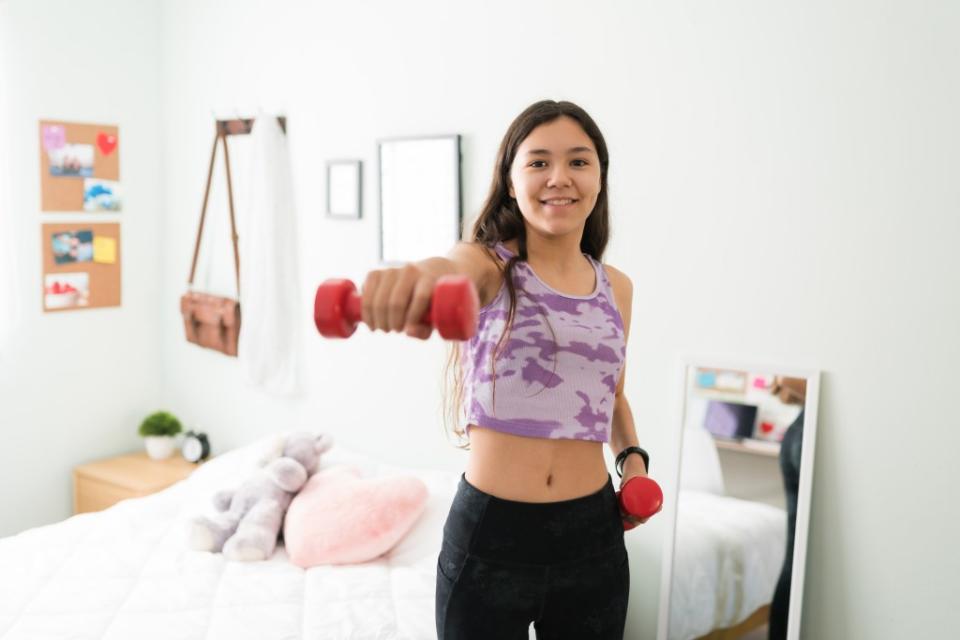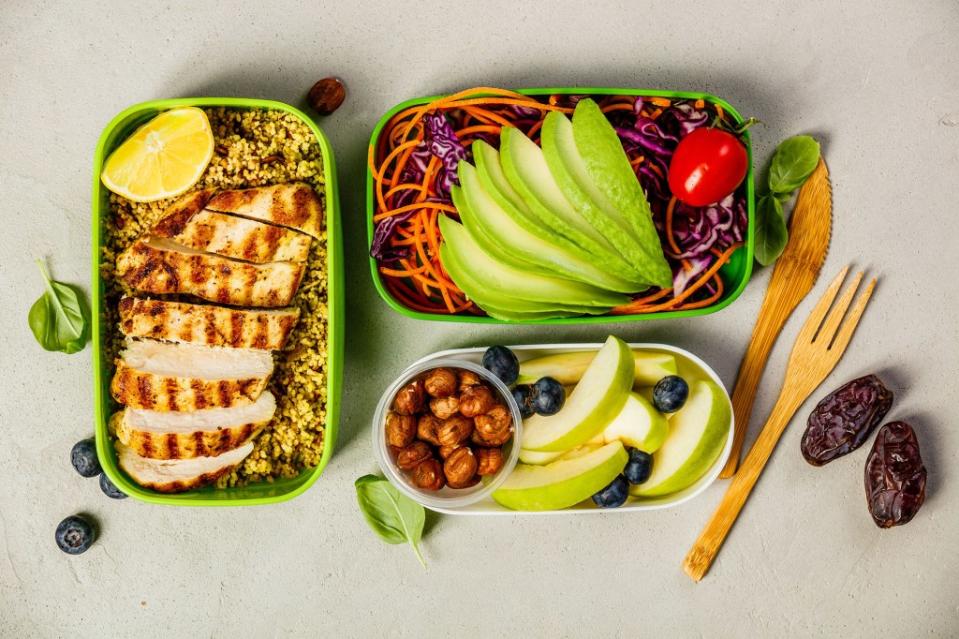I’m a health coach — here are 5 ways you can reduce stress in your life

These tricks work in a pinch.
If you’ve ever sat at your desk and suddenly realized that your shoulders are hunched up by your ears — you’re not alone.
Stress and tension can manifest in ways that are way more physical than you might think, NY-Presbyterian Health Matters reports.
“Many people don’t realize how damaging stress can be,” said Maria Corvese, a well-being coach at NY-Presbyterian Queens. “Stress can impact many aspects of well-being, including your sleep, digestion and overall outlook on life.”
Corvese is sharing five simple steps to reducing stress — exercise, stretch, breathe, practice mindfulness and eat a well-balanced diet.

Exercise
Movement doesn’t have to mean huffing on a treadmill for an hour or slogging away at a grueling boot camp class.
In fact, to reap the health benefits of exercise, all you have to do is log 150 minutes a week, according to the American Heart Association.
NY-Presbyterian recommends taking a 30-minute walk at lunchtime, turning meetings into walking meetings or doing squats at your desk.
Or, get off the subway a few stops early and walk to work — aim for the stairs instead of the escalator.

… Or stretch
You don’t have to hit the gym to get in a little bit of movement. Gentle stretching can be done just about anywhere, and studies confirm that even a little movement can have plenty of benefits.
“I enjoy calming poses such as child’s pose, downward dog or even just lifting both arms up and stretching gently to each side,” Corvese said. “It is amazing how even just a few moments in each stretch can really help reduce stress.”
Pair your stretching with deep breathing for optimal gains. Experts also say that ideally, you should hold each static stretch for 60 seconds — and it’s OK if you can’t do that all at once.
In other words, try 20 seconds, take a pause, and then repeat two more times to get to 60.

Just breathe
If you’ve ever been in the middle of a heated moment and forced yourself to take a few deep breaths, you already know how the simple practice can immediately help to cool things down. The same goes for stress.
Studies have shown that big, slow breaths send more oxygen to the brain, which helps to activate the parasympathetic nervous system, resulting in a calmer state.
There are plenty of styles of breathing that you can experiment with — alternate-nostril breathing, box breathing or something the American Institute of Stress calls “teddy bear breathing.”

In that style of breathwork, you lie on your back, place one hand on your chest, and place a light object, like a teddy bear or plastic cup, on your belly. Slowly breathe in and watch the object rise as your belly expands, then exhale and watch it fall. If you can’t lie down, you can also repeat this exercise seated with a hand on your belly instead.
“I like 4-7-8 breathing,” Corvese said. “You start by breathing in deeply for four seconds, then holding the breath for seven seconds, followed by slowly releasing all the air in the lungs for eight seconds. You can do this up to four times in a row, and it is a great technique that can be done at your desk, in the car, on a checkout line or anytime you are feeling some tension.”
Eat well
Although it might be tempting to reach for certain comfort foods — like ice cream or chocolate desserts — when you’re feeling the weight of the world, you’re actually not doing your body any favors, experts say.

That’s because those high-sugar or fatty foods often lead to an energy crash a few hours later.
Instead, Corvese advises adopting a diet rich in fruits and vegetables because stress can weaken the immune system — and especially consuming produce high in vitamin C, like grapefruit in the winter, oranges in the spring, cantaloupe in the summer and apples in the fall.
“I find entering the workweek with a prepared plan of what to eat is the best way to stay on track, even on the busiest days,” Corvese counseled.
Practice mindfulness
Corvese says being aware of your physical or emotional condition — and accepting it without being hard on yourself — can reduce stress.
“You can start by choosing one thing to focus on, whether it’s increasing your weekly meditations, adding in one workout a week or eating a balanced diet between planned parties and events,” Corvese suggested.

